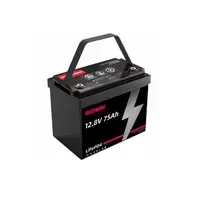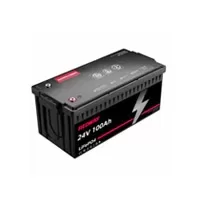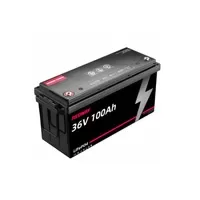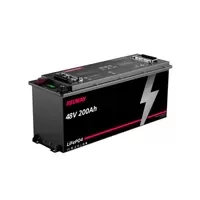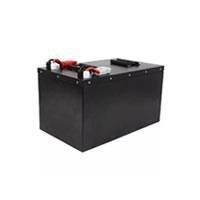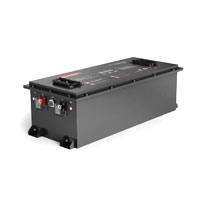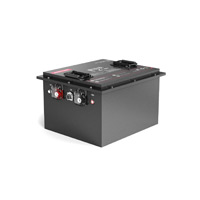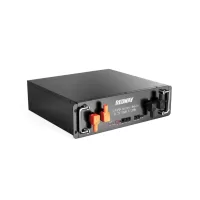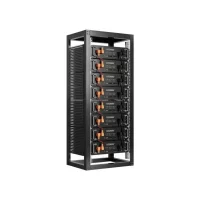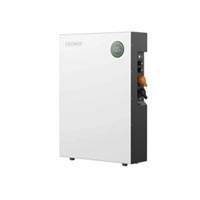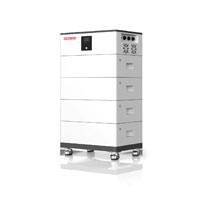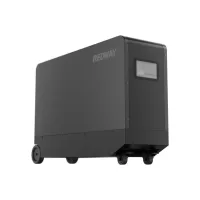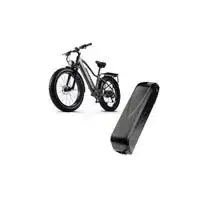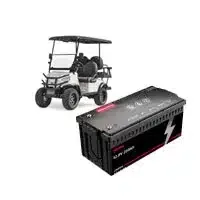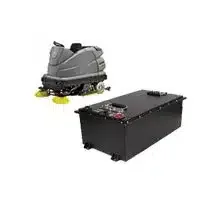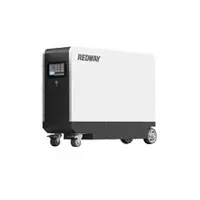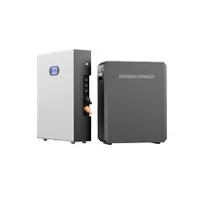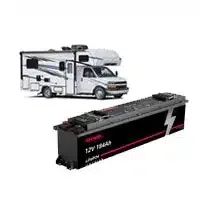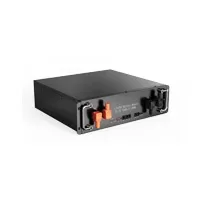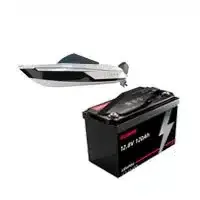Considering an electric bike but confused by the technical details? This post breaks down the speed of a 2000W 48v model in simple terms. Join us as we explore the basics of wattage, voltage, and speed to rev up your understanding of electric bikes!
The basics of electric bikes and their power
- Introduction: Electric bikes, or e-bikes, are changing how we travel by providing an eco-friendly and efficient alternative. Combining motorized convenience with the health benefits of cycling, they are powered by a battery and motor system.
- Power Dynamics:
- Electric bikes differ from regular bicycles by having a motor that assists in propulsion.
- Wattage is a measure of the energy consumed by the motor, with higher wattage indicating more powerful performance for acceleration and speed.
- Voltage plays a role in the efficiency of converting electrical energy into motion, influencing acceleration and potential top speeds.
- Performance Boost:
- A 2000W e-bike boasts robust power potential, making uphill climbs easier and extending the range of rides.
- Understanding wattage and voltage helps gauge an e-bike’s capabilities, ensuring it aligns with your desired performance level.
- Calculating Speed:
- Wattage and voltage are key factors in determining an e-bike’s speed capabilities.
- Higher wattage generally leads to more powerful motor output, while increased voltage allows for faster acceleration and potentially greater top speeds.
- Conclusion: Electric bikes offer a dynamic blend of eco-consciousness and efficiency. By grasping the basics of wattage and voltage, you can make informed choices when selecting an e-bike that aligns with your desired speed and performance.
Understanding wattage and voltage
- Introduction: Electric bikes have gained popularity as a convenient and eco-friendly alternative, but the technical details can be confusing. Understanding wattage and voltage is crucial for decoding an electric bike’s performance.
- Wattage and Voltage Basics:
- Wattage indicates motor power, with higher wattage leading to more speed.
- Voltage represents electrical force, influencing power efficiency.
- Higher wattage and voltage result in faster speeds on an electric bike.
- Calculating Speed Factors:
- Rider and bike weight, terrain, wind resistance, and tire pressure impact overall speed.
- 2000W 48v signifies a potent motor (2000 watts) with efficient power delivery (48 volts).
- Actual mph may vary based on external factors mentioned earlier.
- External Influences:
- Road conditions and local regulations affect reaching maximum speeds.
- Comparing electric bike speeds to traditional bikes highlights their distinct purposes.
- Conclusion: Understanding wattage and voltage unveils an electric bike’s power potential, but precise mph calculations hinge on various external factors. Electric bikes and traditional bikes serve different needs, with e-bikes offering motor assistance for longer distances or challenging terrains.
Calculating speed based on wattage and voltage
- Introduction: Understanding an electric bike’s capabilities involves calculating speed based on wattage and voltage. Wattage signifies motor power, while voltage indicates the electrical force behind it.
- Wattage and Voltage for Speed:
- Higher wattage and voltage generally mean faster electric bike speeds.
- A 2000W 48v bike boasts a powerful 2000-watt motor and a 48-volt battery for enhanced performance.
- Additional Speed Considerations:
- Exact mph calculations require considering factors like weight distribution, terrain, wind resistance, tire pressure, and rider input.
- While 2000W 48v offers significant power, legal limits for electric bikes should be acknowledged.
- Conclusion: Calculating speed based on wattage and voltage provides a basic understanding, but for precise estimations, factoring in external elements is crucial. Electric bikes with 2000W 48v bring powerful acceleration, but adherence to legal regulations is essential.
Converting 2000W 48v to mph
- Introduction: Understanding the power of electric bikes involves grasping the wattage and voltage of the motor. Exploring a 2000W 48v electric bike sheds light on how these numbers impact speed.
- Wattage and Voltage for Speed Estimation:
- Wattage signifies motor power, and voltage represents the electrical force driving it.
- Combining 2000W and 48v allows us to estimate speed, considering factors like weight, terrain, and wind resistance.
- Expectations for Higher Ratings:
- While there isn’t a direct formula for converting watts and volts to mph, higher ratings generally lead to faster speeds.
- A 2000W 48v electric bike is expected to offer impressive acceleration and potentially higher top speeds than lower-powered models.
- Comparison with Traditional Bicycles:
- Traditional pedal-powered bicycles average speeds of 10-20 mph, depending on rider effort and terrain.
- Electric bikes, especially high-powered models like 2000W 48v, can achieve speeds beyond what traditional bikes can attain through pedaling alone.
- Conclusion: Converting specific wattage and voltage ratings into exact mph measurements may have variables, but riders can anticipate increased acceleration and potentially higher top speeds with high-powered electric bikes like the 2000W 48v model.
Factors that can affect speed
- Introduction: Speed is a crucial aspect for electric bike enthusiasts, but various factors can influence it. Understanding these elements helps riders manage expectations and optimize performance.
- Terrain Impact:
- Flat roads allow higher speeds compared to uphill or rough terrains.
- The type of terrain significantly influences an electric bike’s speed capabilities.
- Rider Weight Influence:
- Heavier individuals may require more motor power to maintain higher speeds.
- Rider weight is a key factor affecting the overall speed of an electric bike.
- Wind Resistance Challenge:
- Strong headwinds pose challenges for maintaining high speeds, even with a powerful 2000W 48v motor.
- Wind resistance becomes a crucial consideration as riders aim for top speeds.
- Battery Efficiency Importance:
- Aging batteries may lose capacity over time, affecting the bike’s power output.
- Regular maintenance and timely battery replacement ensure optimal performance and sustained speed.
- Overall Considerations:
- While a 2000W 48v motor provides substantial power, actual mph depends on a combination of factors.
- Considering terrain, rider weight, wind speeds, and battery health together gives a comprehensive view of an e-bike’s maximum achievable speed.
Comparing electric bike speeds to traditional bikes
- Introduction: Comparing electric bike speeds to traditional bikes reveals key advantages. The power of a 2000W 48v electric bike provides serious speed, offering a significant boost with minimal rider effort.
- Electric Bike Advantages:
- Electric bikes excel in speed due to their powerful motors.
- They offer consistent speeds regardless of terrain or incline, providing an effortless ride.
- Traditional Bike Limitations:
- Traditional bikes rely solely on human power, limiting achievable speeds.
- While experienced cyclists may reach high speeds, most riders struggle to match electric bike speeds.
- Top Speed Potential:
- A 2000W 48v electric bike can reach speeds upwards of 28 mph.
- Actual speed may vary based on factors like weight load, wind resistance, tire pressure, and battery life.
- Conclusion:
- Electric bikes, powered by 2000W at 48v, outshine traditional bikes in terms of speed and ease of use.
- Consider an electric bike for a faster and more efficient way to navigate town or explore trails.
Redway Battery OEM Factory Wholesale Price. Get a Quick Quote Now!


